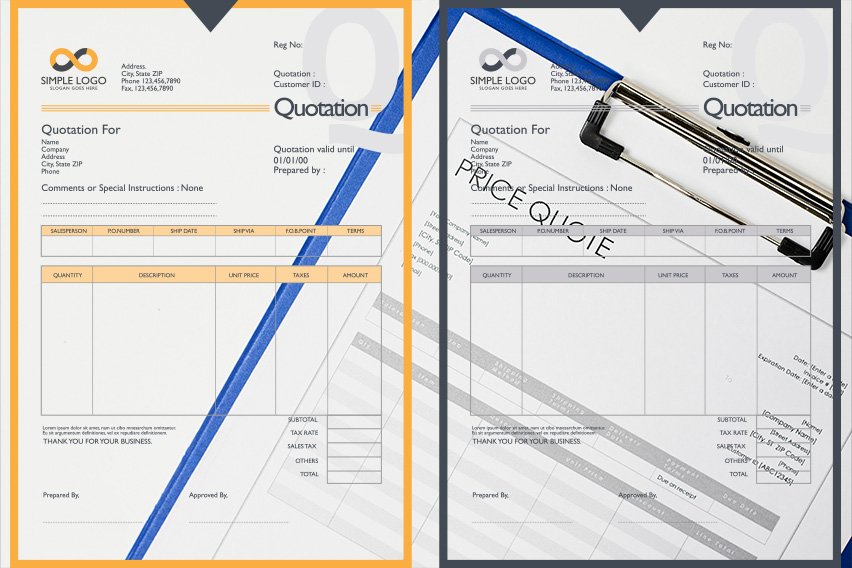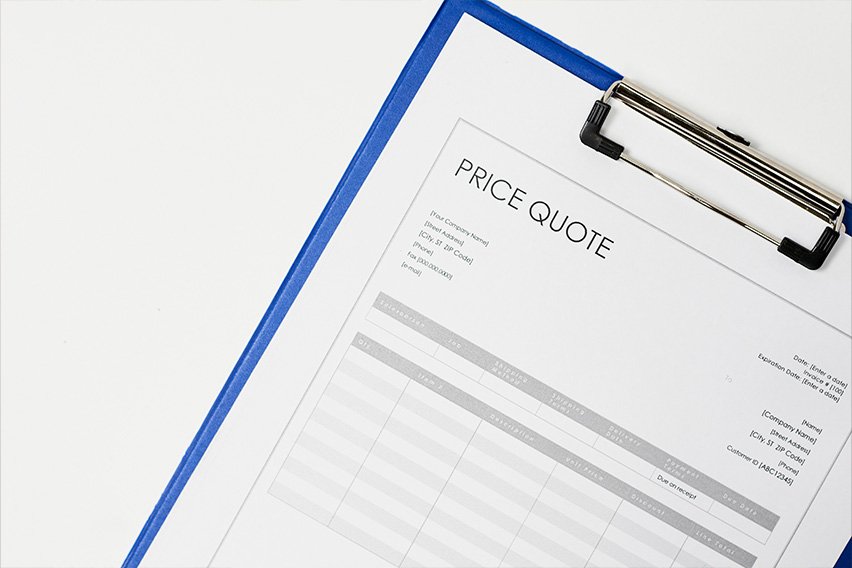5 Reasons Why It’s Important for Small Businesses to Use Estimates

Estimates are documents that provide approximate costs for a project. Small businesses create them for potential clients so both parties are clear on the ins and outs of a project before it starts. FreshBooks has an estimates feature that help you build an estimate quickly and easily.
Unclear on what an estimate is? This article provides all the details.
In this article, we’ll look at the following reasons why estimates are important:
- Build Better Client Relationships
- Ensure You Understand What the Project Involves
- Help You Decide Whether to Take on the Project
- Determine If You Have Enough Cash
- Help Estimate a Completion Date
1. Build Better Client Relationships
An estimate helps build solid client relationships. An estimate includes all project details and makes sure you agree on everything from completion dates to prices. If you and the client are on the same page, it’s much less likely there’ll be conflict down the road.
- For example, surprise costs are guaranteed to make your clients unhappy. Outline all your costs upfront in your estimate. It’s a good business practice and good for your client relationships, too.
That said, clients may not necessarily read all the details of your estimate. That’s why you should call or sit down with them and go over all these details to make sure they understand and agree to them.

2. Ensure You Understand What the Project Involves
An estimate will definitely help a client understand exactly what they’re paying for. But it will be even more beneficial for you, the small business owner.
Writing up an estimate means taking a long, hard look at what resources you’ll need, what steps are involved and what you may need to contract out, according to Medium.
An estimate also gives you a project plan to work from so you know exactly what needs to be done when. And an estimate can tell the employees of your business what they’ll be expected to do. It’ll also help you realize if you need to get help so you don’t risk burning out your staff.
By understanding exactly what the project involves, you’ll also be less likely to price your project too low. Without drawing up an estimate, you may fail to realize how many steps are involved, if a specialist is required and how long a project will actually take.
3. Help You Decide Whether to Take on the Project
The project might sound good but without an estimate, you won’t really know if it’ll make money.
An estimate will require you to break down all your costs so you can decide what to charge the client. You may realize when estimating these costs that they’ll be so expensive it’ll be impossible to make a profit. Or maybe you can make a profit but other potential projects will be more profitable.
An estimate lets you say “no” to a project before you’ve invested any time or money in it. Better now than later—and this will help with building better client relationships too.
- For example, a general contractor is approached by a potential client who wants to remodel their entire house. The contractor draws up an estimate and realizes that he’d need to hire expensive subcontractors to complete the project—maybe there’s asbestos is the ceilings and a serious rodent problem. The client’s budget won’t accomodate this additional expense so the project won’t be worth it to the general contractor. Construction projects are heavily dependent at coming in at or below budget, according to GlobeSt.com. Since labor costs are increasing, contractors have to be especially mindful when they’re considering subcontractors.
4. Determine If You Have Enough Cash
First, you need to know your entire project budget and how much cash each stage of the project will require. Then figure out if you’ll have enough cash to cover these stages.
Coming up short? A loan is possible but high interest rates might be prohibitive. You may need to call in an investor. In which case, an estimate will help a potential investor decide if the potential payoff will be worth their investment.
- For example, a roofer includes milestones in her estimation that detail when certain stages of the project will be completed and how much will be invoiced at each stage. Learning to manage cash flow is crucial in construction projects so that expenses can be paid for at each stage and the project remains profitable throughout, according to Construction Executive.
5. Help Estimate a Completion Date
Your client is certainly going to ask: “So when is the project going to be done?” An estimate clearly answers that question.
Providing reasonably accurate timelines will prevent you from being taken unawares by a project that runs longer than expected and hurts your cash flow. An estimate should include provisions for possible delays and terms and conditions that outline how a client will be charged if they request extra work.
- For example, a web design company includes their hourly rate in their estimate as well as overall cost based on how many hours the project should take. To accurately estimate the completion date, the owner may break down the project into smaller steps and then decide how many hours each step will take. Or they may base their timelines on similar projects they’ve done in the past. In the end, they decide to use an estimator tool to help make their estimations easier.

People also ask:
What Is the Purpose of an Estimate?
The purpose of an estimate is to help a business plan for and successfully complete projects.
Estimates help small businesses draw up budgets, evaluate cash flow and manage client expectations. Estimates also help a business owner decide on the overall scope of a project (what it does and doesn’t include) while also nailing down all the fine details that will go into said project.
These are all things which make projects run more smoothly and make sure a company continues to get new clients and business. Though an estimate may be extra work upfront, it will pay off in successful projects and more revenue down the line.
Why Do We Need to Estimate?
Simply put, small businesses use estimates when a client asks for one. Chat with your client first to determine exactly what they want. Are they asking several companies to cost out a project? You need to provide them with a bid. Do they want in-depth information on your company and its past work? They’re looking for a proposal.
An estimate, on the other hand, provides clients with approximate costs based on the current project scope while acknowledging things could change. We need to estimate so we know fairly accurately what the project involves and so we can then communicate that to our client.
Estimating never be 100 percent accurate. An estimate is exactly that—an approximation. It’s not an exact science.
Still, it’s important for an estimate to be as accurate as possible so you and the client both understand exactly what you’re getting into.
RELATED ARTICLES

 The 4 Key Types of Estimates: A Guide for Trades and Home Services
The 4 Key Types of Estimates: A Guide for Trades and Home Services Free Quote Templates for Google Docs, Excel & Word
Free Quote Templates for Google Docs, Excel & Word What's a Job Estimate? A Primer for Small Businesses
What's a Job Estimate? A Primer for Small Businesses How to Estimate Remodeling Jobs: A Pricing Guide
How to Estimate Remodeling Jobs: A Pricing Guide What Is a Price Quote? An Introduction for Small Businesses
What Is a Price Quote? An Introduction for Small Businesses What Is a Business Proposal? A Simple Definition for Small Businesses
What Is a Business Proposal? A Simple Definition for Small Businesses